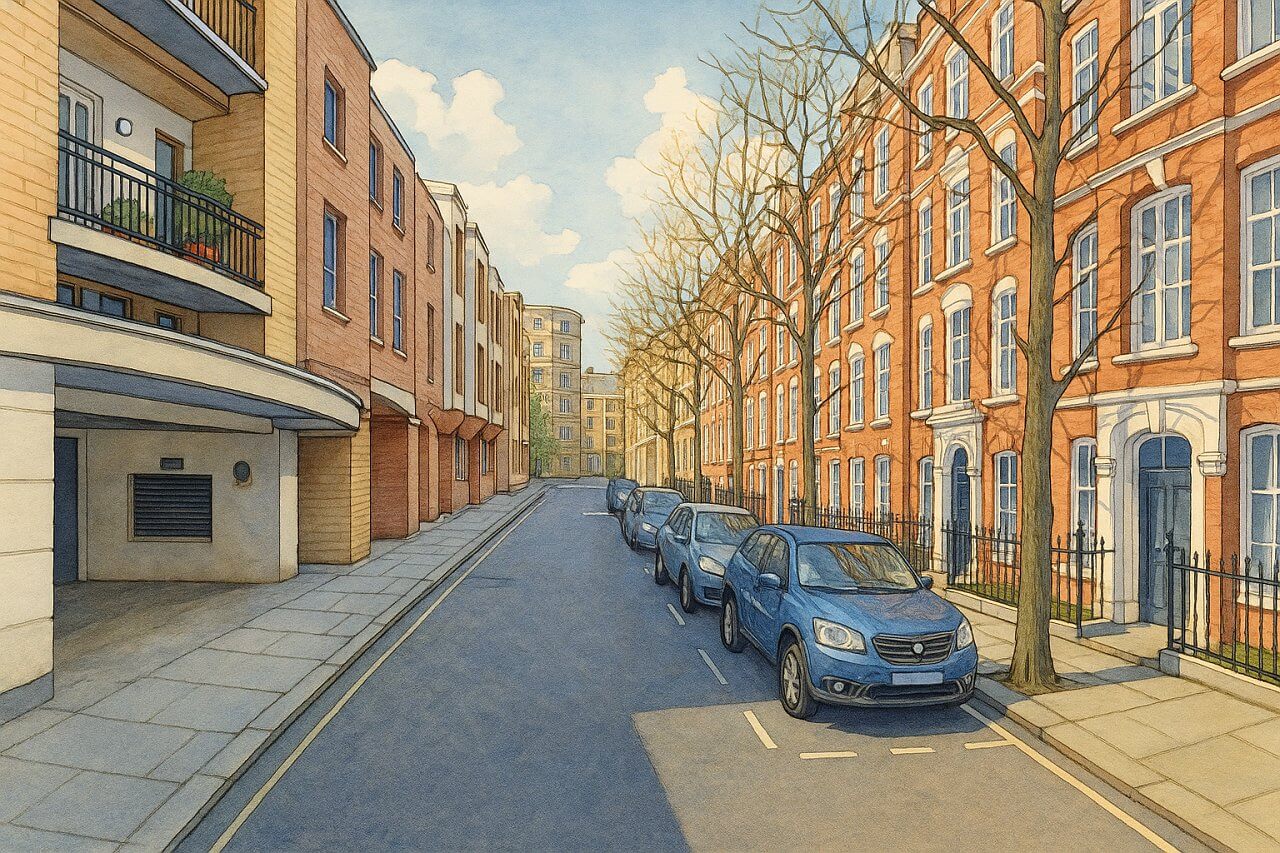
Greycoat Street, London
Greycoat Street, Westminster SW1: History, Character, and Local Insight
Greycoat Street is located in the heart of the City of Westminster, Central London. It runs from Rochester Row at its eastern end to a T-junction with Elverton Street at its western end. Along the way, it branches into Rochester Street.This quiet but well-connected road lies just a short walk from Victoria Station and is close to the major thoroughfares of Victoria Street and Horseferry Road, positioning it within easy reach of some of London’s most iconic institutions, including Westminster Abbey and the Houses of Parliament.
Length and Layout of the Street
Greycoat Street measures approximately 300 metres (984 feet) in length, with a broad and walkable pavement on both sides. There is no formal square or plaza named after it, but it offers a generous streetscape with occasional tree plantings and period lamp posts.The road is split into two traffic sections:
- One-way traffic flows from Rochester Row to the junction with Rochester Street.
- Two-way traffic is permitted from the Rochester Street junction to Elverton Street.
History of Greycoat Street
Greycoat Street has its origins in the early 18th century, developing as part of the gradual expansion of Westminster from a largely ecclesiastical district into a more urbanised civic area. It was initially laid out to serve as housing and access for workers and officials connected to the growing government presence in Whitehall and Westminster.The street became better known in the 19th century, especially due to its proximity to the Grey Coat Hospital, a charity school founded in 1698 for the education of poor children. Though the school was founded before the street was officially established, its enduring presence heavily influenced the naming and social history of the road.
How Greycoat Street Got Its Name
The name "Greycoat Street" is derived directly from the Grey Coat Hospital, which originally clothed its pupils in distinctive grey uniforms. The street gained its name during the 18th century when formal mapping and naming of Westminster’s road network took place. The use of institutional names was common in this part of London, reflecting the charitable and religious foundations prevalent in the area.Connecting Streets and Nearby Roads
Greycoat Street connects to or branches into the following streets:- Rochester Row – a main road running north-south and serving as the northern gateway to Greycoat Street.
- Rochester Street – a short residential street branching westward from Greycoat Street.
- Elverton Street – located at the southeastern end, forming a T-junction with Greycoat Street.
Real Estate Prices and Property Sizes
As of early 2025, property prices on Greycoat Street remain well above the London average. A typical two-bedroom flat measuring around 850 square feet (79 square metres) might fetch between £950,000 and £1.2 million, depending on condition and amenities.In contrast, comparable properties across London average around £525,000 for similar square footage. Larger maisonettes or townhouses on Greycoat Street – sometimes exceeding 1,500 sq ft (139 sq m) – can command prices upwards of £2 million.
The area is popular with both investors and professionals who work in nearby Westminster, Whitehall, and Victoria.
Street Character and Atmosphere
Greycoat Street is primarily a residential road with a dignified, almost village-like character. The architecture is mixed, featuring:- Georgian and Victorian terraced houses
- Mid-20th-century flats
- Modernised apartment buildings and office conversions
Nearest London Underground Stations
Greycoat Street is very well connected to London’s transport system. The two closest Underground stations are:- St. James’s Park (District and Circle lines) – about a 6-minute walk.
- Victoria Station (Victoria, District, and Circle lines, plus National Rail) – around 10 minutes on foot.
Fun Fact: The School That Named a Street
A delightful quirk of Greycoat Street is that its name commemorates a school that still operates nearby today: The Grey Coat Hospital, a Church of England secondary school for girls. Although no longer on the street itself, the institution's long-standing presence in Westminster—and its early 18th-century uniforms—left a permanent mark on the city map.It’s not every day you walk down a London street named after a children’s uniform!
Quick Facts About Greycoat Street
- Location: Westminster, SW1
- Length: Approx. 300 metres (984 feet)
- Traffic: One-way from Rochester Row to Rochester Street; two-way from Rochester Street to Elverton Street
- Named After: Grey Coat Hospital charity school
- Branching Roads: Rochester Row, Rochester Street, Elverton Street
- Nearest Tube Stations: St. James’s Park and Victoria
- Character: Predominantly residential, some offices and school facilities
- Property Prices (2025): £950,000–£2 million depending on size and condition
- Property Sizes: Typically 850–1,500 sq ft (79–139 sq m)
- Fun Fact: Named after a charity school’s uniform from 1698
Map of Greycoat Street, London

Painting of Greycoat Street, London (View image in full size)